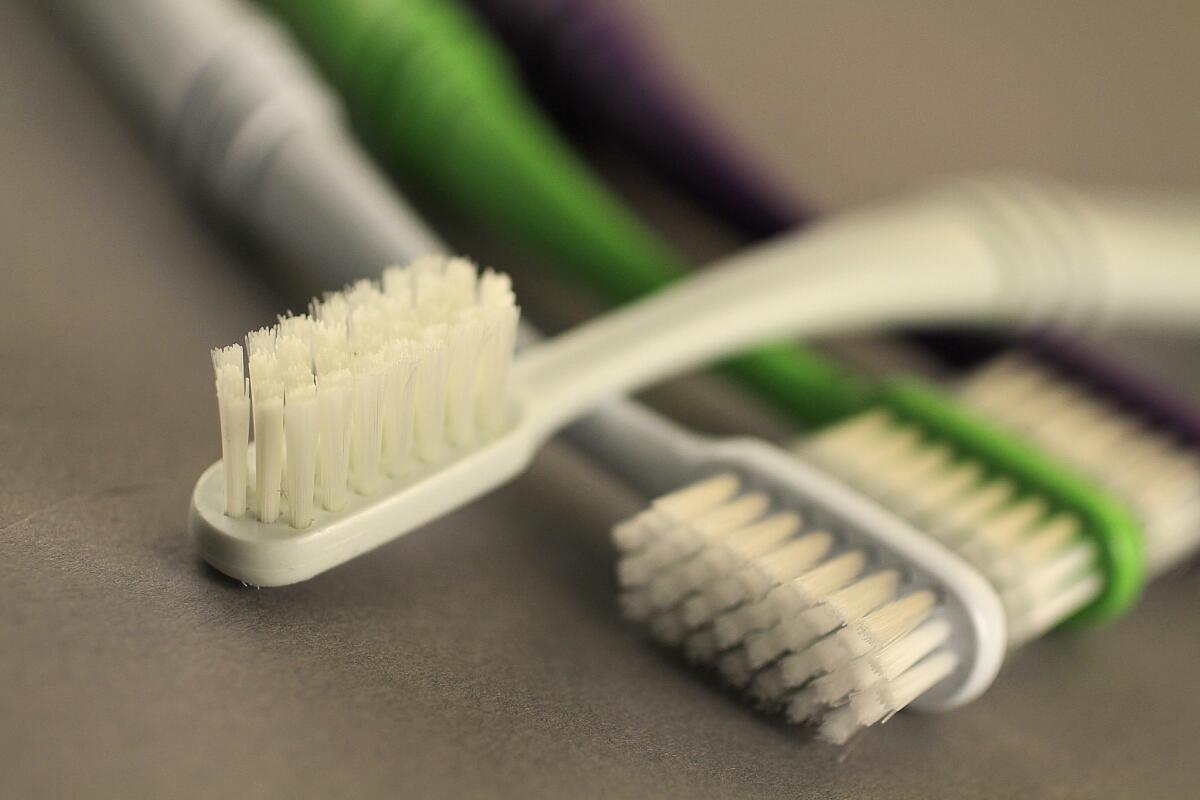Are microbeads in toothpaste dangerous? Yes, to the environment

- Share via
After a blog post by a dental hygienist raised alarm about microbeads in toothpaste, Crest announced that it was planning to stop putting the tiny bits of plastic into its products.
But are microbeads actually dangerous?
The polyethylene specks, no bigger than grains of table salt, can be found in a variety of soaps, exfoliating scrubs and other personal care products. Procter & Gamble, the company behind Crest, says they’re used as scrubbing agents and to add color.
The American Dental Assn. said this week that “clinically relevant dental health studies” haven’t led the group to believe it should remove its seal of acceptance from toothpastes containing microbeads.
Edmond R. Hewlett, a professor at the UCLA School of Dentistry, agreed. “There is no evidence at all that this is a health concern,” he told the Los Angeles Times.
Addressing the concern that microbeads could get under a person’s gums and lead to bad breath and perhaps gum disease, Hewlett acknowledged that any foreign object stuck under the gum can become a problem if it stays there. Bacteria can attach to such objects, causing inflammation of the gums, he said.
“But that presumes the bead can’t be easily removed with brushing or flossing,” he said, “and there’s no evidence whatsoever that these beads are able to get stuck under the gum to the extent that normal brushing or flossing couldn’t remove them.”
Hewlett said the only reason he didn’t recommend using toothpastes with microbeads was that he worried about their effect on the environment.
The plastic beads do pose environmental problems. They are not biodegradable, and they can pick up toxins such as insecticides and industrial chemicals. Because wastewater treatment plants can’t easily remove the beads, they flow into waterways, out to sea and into the food chain.
In June, Illinois became the first state in the U.S. to ban the sale and manufacture of personal care products containing microbeads. A California lawmaker introduced similar legislation this year, but it has been shelved.
For news about science, health and more, follow @raablauren on Twitter.




